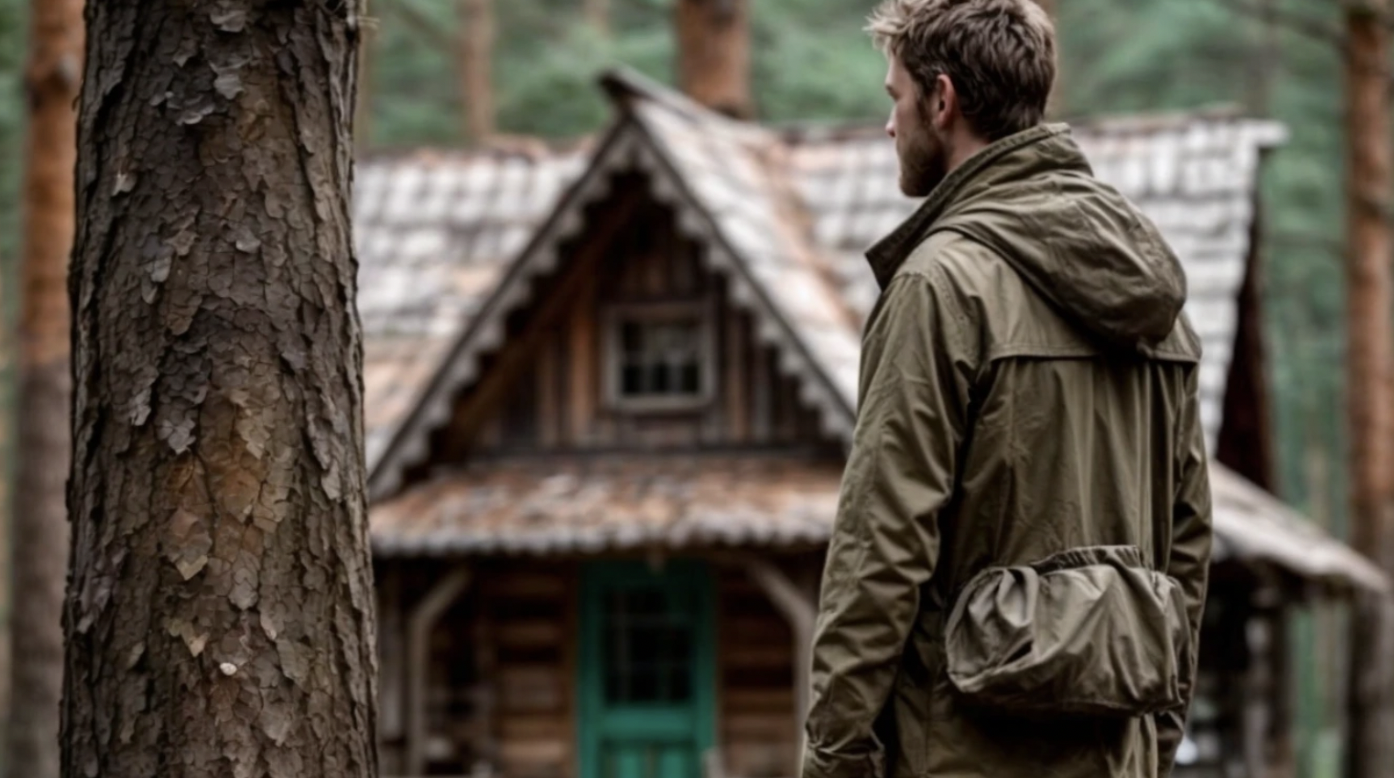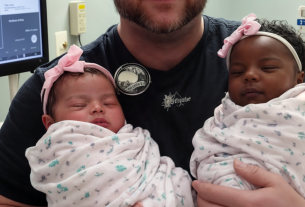Anna Fedorovna sighed deeply as she placed yet another pot under the relentless drips of rain that stubbornly penetrated the ceiling. The old woman shook her head as if in conversation with the very sky.
— What a nuisance! And when will this ever stop? The rain is endless. Has God’s roof started leaking up there?
If during the previous bout of bad weather she had arranged only a couple of basins, now she had to set out four, plus a kettle—and another right on the floor so the corner by the stove wouldn’t flood.
— As long as the roof doesn’t collapse, or else it’ll crush me and they won’t be able to find me!
Out of habit, the old woman made the sign of the cross just as another booming clap of thunder rumbled outside, as if the Thunderer himself had decided to test her resolve.
— Oh, Lord! What on earth is happening? I haven’t seen a storm like this in about twenty years!
Anna Fedorovna had long grown accustomed to talking to herself—and to the cat, though the cat, as usual, did not join the conversation. It sat nervously on the stove, its eyes glinting as though it were watching a performance that no longer amazed it.
— What, are you scared? Don’t be a coward; we’re not going to perish in this thunderstorm.
Barely had she finished her sentence when the door burst open, and a male silhouette appeared in the doorway. The old woman shrieked and recoiled, pressing her hands to her chest.
— Don’t be frightened, dear. I come in peace.
— Well, if you’re in peace, come in.
The stranger took a few steps before literally collapsing onto a stool, as if all his strength had abandoned him.
— I need a drink.
She scooped out and handed him a wooden ladle filled with apple kvass from an oak barrel. The man guzzled it greedily, as though trying to silence not only his thirst but also his pain. Setting the ladle aside, he raised his gaze, heavy with exhaustion.
— Do not fear me. It just so happens that I had to flee to prove my righteousness. But now I’m too weak to run any further. I’ve been wounded. Might I rest a bit in your cellar or even in the attic?
Anna Fedorovna approached, carefully scrutinizing the fugitive. Her perceptive, wise eyes seemed to see right through him.
— Well, if you speak the truth, you may rest. But if you lie—God will punish you.
She led him deeper into the house to a room hidden behind an old door that hadn’t been used for many years.
— Here, behind this door is an empty room. Make yourself comfortable, — and the old woman left him alone.
Nikolai sank onto a makeshift bed, each movement sending pain through his side. His head buzzed, his vision blurred. He carefully withdrew his hand from his tunic—his entire side was discolored a brownish hue.
— Damn it!
Struggling to shed his coarse clothing, he finally collapsed onto the covering. It felt as if he wasn’t falling asleep but rather drifting away, trying to hold on but unable.
No sooner had Nikolai lost consciousness than the hostess entered the room with a basin. Casting a glance at him, she shook her head, washed his wound—confirming it was through-and-through—and then applied a salve kept in an old jar with an inscription, barely legible from time.
— Now, sleep. This is what you need right now.
Nikolai awoke to the sun beating on his face, with yesterday’s storm seeming like a distant memory. For a moment, he didn’t recall where he was or how he’d ended up here. Once his memory returned, he tried to rise. The pain in his side pierced him, and immediately, as if by magic, the door swung open and the old woman re-entered.
— Awake! Good, you’re awake. Don’t get up too quickly—take it slow. You mustn’t; your wound is still fresh.
— Grandma, how long have I slept? About eight hours?
She laughed—a warm, sincere laugh that made Nikolai smile involuntarily.
— A full day with a hook! Perhaps you’d like something to eat?
Nikolai wasn’t just hungry—he could have devoured anything in sight.
— Absolutely!
— Well then, let’s go slowly.
He followed her, surprised at how much less the pain hurt than he’d expected.
Grandma set the table, placing before Nikolai a large bowl of hearty cabbage soup and a little pot of sour cream, and she cut a loaf of bread. He glanced regretfully at the small cast-iron pot from which his soup was ladled. The hostess smiled:
— You see… You won’t overcome everything. But if you do, I’ve got some potatoes simmering in the oven.
He hurriedly spooned his soup. She asked:
— My name is Anna Fedorovna, and what is yours?
— Nikolai.
— How curious.
Somewhere halfway through the bowl, he realized he had eaten to his heart’s content, yet out of habit continued to bring the spoon to his mouth. Grandma settled herself opposite him.
— Now, Nikolai, tell me your story.
He pushed his bowl aside, and Anna Fedorovna immediately set a mug before him.
— Drink. It isn’t sweet, but right now it’s vital for you.
He sniffed the broth, grimaced, but took a sip without a thought that the old woman might harm him.
— There isn’t much to tell. I had it all: wealth, a family, prosperity. And then, in a single moment, my wife decided I was no longer needed, though my money would surely be useful to her. That night, she—along with her lover, I hope it was just an accident—ran someone over and fled. Afterwards, she testified as if she’d seen me returning in a car at night and covering my tracks. Her lover—a journalist—has friends everywhere. In a single day, I was convicted, and I spent three months in jail. I couldn’t stay there any longer. I needed to find someone who would help me—not for me, but for the truth. I managed to slip away, but I still haven’t figured out how to reach him.
— Well, if it’s all as you describe, everything will work out.
— Oh, Anna Fedorovna, I wish I had your confidence! I wasn’t an easy man either: I believed that since I had capital, nothing else was needed—everyone would value and respect me. But when trouble came, everyone turned away. And it wasn’t even for any good reason—it just happened.
The hostess got up, cleared away the dishes, and brought out a worn deck of cards. Nikolai watched in amazement as she laid them out and murmured to herself. Finally, she gathered the cards into a stack.
— In three days, you must leave. If you depart when I say so, you’ll reach your friend.
Nikolai had never believed in divination or psychics, yet here she was laying out the cards over and over, as if they were living beings that could tell her something. Her wrinkled fingers deftly moved over the worn deck, and her eyes seemed to see beyond the room’s confines. Only after several long minutes of silence did she finally speak:
— You were born far from here, an only child. Your parents are alive, living far away—they watch the road with tears in their eyes. They await their son. And the son is slow—not because he is imprisoned, but because he never hurried even before.
Nikolai stared at her, a deep sense of shame overwhelming him. Every word struck him like a hammer blow to his conscience. Yes, it was all true. He sent money to his parents, yet hadn’t visited them for three years. He knew they were aging, that they were lonely, but there was always an excuse—work, business, Sveta…
— Your wife is beautiful, but such a terrible deceiver. She’s always had many men—before you, even while with you. And she even got rid of the child. You could have had a son, but she refused to have him.
He sat, as if struck by lightning. And indeed, he had suspected! But Sveta had explained it away as “women’s problems.” She even moved into the guest room for a couple of weeks, then began frequent trips to a clinic. Nikolai chose to distance himself, attributing everything to her “issues.” How could he have been so blind?
— And your friend is worried—he’s looking for you, and he already has… He will help you, rescue you, without even remembering the hurt you caused him and his family.
Nikolai nearly fell off his chair. Grandma knew too much. How could she have known about Larisa? About that time when I left her for Sveta? They had quarreled bitterly—fighting even—but later made up. Nikolai had always believed that it was Larisa’s idea to forgive him and preserve the friendship. But now, doubt crept in.
Anna Fedorovna gathered the cards and looked at him with a slight smile.
— Incredible!
She laughed heartily—a laughter that was warm, yet tinged with sadness.
— And what did you expect? I used to be considered the best fortune-teller in the region. But now… Now I no longer practice, I simply can’t bear to see other people’s destinies. Rarely does anyone come for a reading when everything is going well. But when all is at an end, when everything is bad—then, of course. You know, when a person comes to you, what do you often see? Most often—the end.
Outside, the rumble of thunder resumed. The storm had made its presence known again, and Anna Fedorovna, sighing, began to arrange the basins once more. The cat, as usual, leapt onto the stove and curled up, while Nikolai watched the hostess in amazement. She seemed to know exactly where the water would leak. And so it happened: amidst the cheerful patter of raindrops and rolling thunder, they continued their evening.
— There’s almost no one left in the village. In the past, when townsfolk visited, I could call upon workers. But now, there’s no one to ask. I always wonder which will happen first—will I leave, or will the ceiling collapse?
Three days later, Nikolai had regained his strength in the village. No new faces appeared—only once did a local service truck pass by. Early in the morning, the hostess woke him in the dark:
— It’s time for you to go, Kolya. They’re coming for you here.
He got up easily, embraced Anna Fedorovna.
— We will surely see each other again. Thank you!
— Now go, or I’ll be crying over these farewells all day. We’ll meet again, I’m sure.
She explained how to get through the garden to the station, how to catch a bus—or better yet, a commuter train—and she gazed into the pre-dawn darkness long after he had left.
The downpour stopped as suddenly as it had begun. This summer, the weather was truly tropical: scorching in the morning, then a heavy rain, and once more, warmth.
Anna Fedorovna collected the basins, emptied them, and carried buckets into the yard. She stepped onto the porch and froze—a large vehicle was approaching the house. Anna Fedorovna had never seen anything like it—a truck, perhaps, but with some sort of structure on top resembling a basket. Another car—a large sedan—followed.
— Could it be war?
Anna Fedorovna made the sign of the cross. Both vehicles stopped. Now she could see that in the first truck’s cargo were planks, some large packages, and something scarlet, reminiscent of slate but clearly not slate. From the second car, Nikolai emerged.
Anna dropped the bucket and hurried to greet her lodger.
— Hello, Anna Fedorovna! I told you we’d see each other soon.
— Well, not so soon—it’s been three months already.
— It wasn’t entirely up to me; I was arrested again while my friend was sorting things out. It was only for a month—for the courts and all that. And I’m not alone this time.
He returned to the car, opened the door, and out stepped a young woman who smiled shyly.
— Hello.
They decided to dine outdoors. Larisa, Anna Fedorovna, and Nikolai prepared three enormous pots of food for everyone. While Larisa set the table, Anna Fedorovna laid out the cards. Kolya sat next to her.
— What do they show?
— They say, Kolya, that you did the right thing by returning to the past and correcting your mistake. It is your cruelty that set everything awry. But… — he looked at the old woman in fear. — Are you planning to marry?
— Yes, even now, though I fear she might reject me.
— She won’t reject you—for a child without a father should never see the light of day.
Kolya stared at the smiling Larisa. After dinner, when Anna Fedorovna was asleep and the workers had retired, Larisa and Nikolai settled in the car for the night.
— Lar, how do you feel about tying the knot with an ex-convict? She looked at him in surprise, but Nikolai gazed at the sky just as she had moments before.
— Is that your creative way of proposing?
— Well, yes.
— I don’t know… The prospect isn’t too appealing: I’d be raising a bunch of kids, and my husband—constantly moving from jail to jail. — She feigned a heavy sigh and turned her gaze toward the stars.
Nikolai suddenly leaped up, nearly striking his forehead, and Larisa laughed.
— Yes, of course, yes! I’ve been waiting for those words for so long. Though I thought everything would be proper—rings and flowers and all.
— God willing, Fedorovna won’t kill me. — Nikolai dashed outside, looked around, plucked a lily from the garden in the old woman’s palisade, and hurried back to the car.
— Here are the flowers! And I’ll get a ring in the city. And, Lar, we’ll visit my parents.
— Of course, we will.
Watching all this from the summer house, Anna Fedorovna sighed and smiled.
— Very good, now everything is as it should be.



